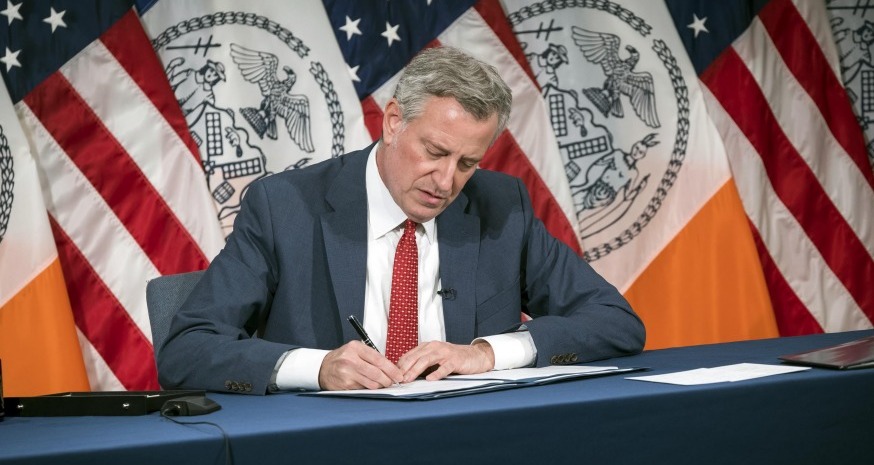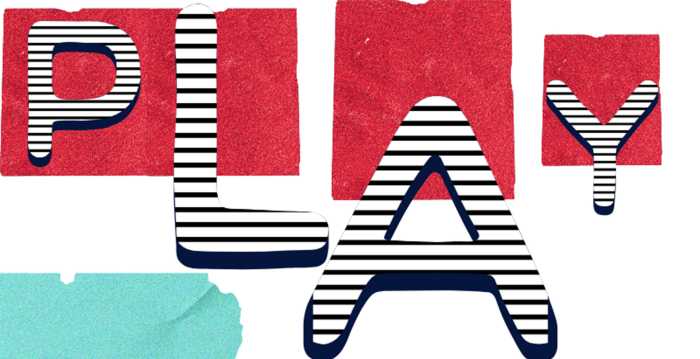
Mayor Bill de Blasio signs seven pieces of legislation providing relief for tenants, commercial establishments, and restaurants during the COVID-19 pandemic. City Hall. Tuesday, May 26, 2020. (Ed Reed/Mayoral Photography Office)
May 27, 2020 By Michael Dorgan
The mayor has signed several new bills into law to support small businesses during the COVID-19 shutdown.
Mayor Bill de Blasio signed the legislation Tuesday after the City Council passed the relief measures earlier this month.
The legislation slaps price caps on third-party food delivery services and extends the suspension of sidewalk cafe fees to help struggling small businesses, the mayor said at a press briefing.
The new laws also protect commercial tenants from landlord harassment and personal liability, he said.
De Blasio said the new laws offer sweeping protections for small business owners at a time of economic crisis.
“New Yorkers have been fighting every day to flatten the curve and get through this pandemic together,” the mayor said. “Now, it’s time for us to give back to them,” he said.
Two new laws aim to clamp down on what delivery app companies can charge restaurants. One law prohibits app companies from charging restaurants for telephone orders that do not result in an actual sale.
Ordering app companies will also not be able to charge more than 15 percent commission on deliveries and more than 5 percent for all other charges, including credit card processing.
These caps will only apply whenever there is a state of emergency such as COVID-19. Both bills will take effect June 2 and will last for 90 days after the end of a declared emergency.
Indoor sidewalk cafe fees for restaurants will be suspended until Feb. 28, 2021, and outdoor sidewalk cafes fees will be on hold for the duration of the pandemic.
The legislation also takes aim at commercial landlords who threaten to evict struggling tenants–specifically those who have lost business due to COVID-19. Furthermore, landlords are temporarily barred from going after the personal assets of these tenants if they cannot meet their lease obligations.
One Comment







We’re apparently #ninebill in the hole!
Has this guy passed third grade math???